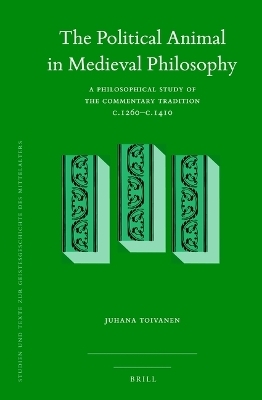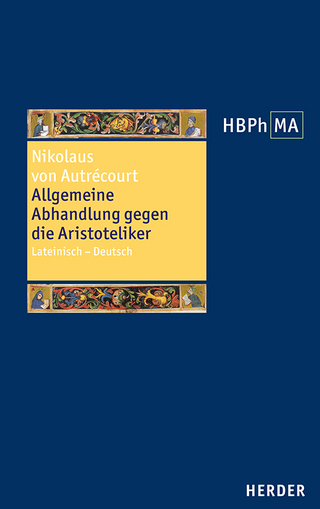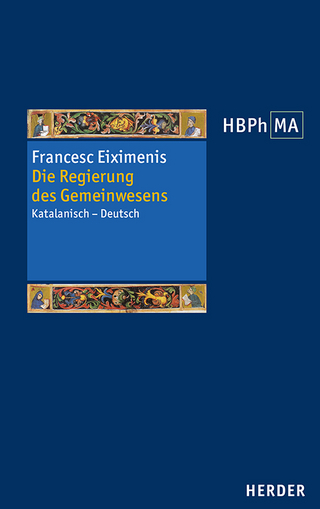
The Political Animal in Medieval Philosophy
Brill (Verlag)
978-90-04-34269-9 (ISBN)
In The Political Animal in Medieval Philosophy Juhana Toivanen investigates what medieval philosophers meant when they argued that human beings are political animals by nature. He analyses the notion of ‘political animal’ from various perspectives and shows its relevance to philosophical discussions concerning the foundations of human sociability, ethics, and politics.
Medieval authors believed that social life stems from the biological and rational nature of human beings, and that collaboration with other people promotes prosperity and good life. Toivanen provides a detailed philosophical interpretation of this view across a wide range of authors, including unedited manuscript sources. As the first monograph-length study on the topic, The Political Animal sheds new light on this significant period in western political thought.
Juhana Toivanen, DSocSc (2009), is an Academy Research Fellow at the University of Jyväskylä. He has published widely on medieval philosophical psychology and political philosophy, including the monograph Perception and the Internal Senses (Brill, 2013).
Acknowledgements
Abbreviations
Introduction
1 Historical Setting
2 Authors and Sources
3 Methodology
4 Contents in Brief
5 How to Use This Study?
6 A Note about Translations
1 Terminology
1 Basic Terminology: Political, Conjugal, and Domestic
2 Political or Social Animal?
3 Later Developments
2 Needs, Desires, and Natural Inclinations
1 Preservation of Oneself and the Species
2 Inclination and the Body That Makes Us Social
3 Reflections on Mirrors of Princes
4 Instrumental Role of the Community
5 Cities and beyond
3 Good Life, Virtue, and Human Sociability
1 Good Life and Virtue
2 Aims of Individuals and the Community
3 Social Role, Prudence, and Virtue
4 Is Practical Happiness for Everyone? Virtue and Prudence of Citizens
5 Prudence of Slaves (and Women)
6 Craftsman qua Craftsman qua Human
7 Happiness and Morality
4 Reason and Language
1 Naturalness of Language
2 Language and Justice
3 Creating Communities
4 Purpose of the Linguistic Argument
5 The Social and Political Nature of Animals
1 The Ant, the Bee, and the Crane
2 Forget the Bee: Truncating the Linguistic Argument
3 No Animal Is Political
6 Beasts, Gods, and Human Beings
1 Part/Whole Metaphysics
2 Solitary Humans
3 What Is It Like to Be a God?
4 Ways of Being Wild
5 The Normative Scale: Above and below Beasts
Conclusion
Appendix
Bibliography
Index
| Erscheinungsdatum | 09.10.2020 |
|---|---|
| Reihe/Serie | Studien und Texte zur Geistesgeschichte des Mittelalters ; 129 |
| Verlagsort | Leiden |
| Sprache | englisch |
| Maße | 155 x 235 mm |
| Gewicht | 870 g |
| Themenwelt | Geisteswissenschaften ► Geschichte |
| Geisteswissenschaften ► Philosophie ► Philosophie des Mittelalters | |
| ISBN-10 | 90-04-34269-9 / 9004342699 |
| ISBN-13 | 978-90-04-34269-9 / 9789004342699 |
| Zustand | Neuware |
| Haben Sie eine Frage zum Produkt? |
aus dem Bereich


